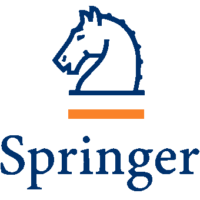

PUBLICATION PARTNER


PUBLICATION PARTNER
Publication: All ICSCPS-2026 presented papers will be published in conference proceedings
by Springer ‘Smart Innovation, Systems and Technologies’ ISSN: 2190-3018,
Book Series.
Indexing: Indexed by SCOPUS, INSPEC, WTI Frankfurt eG, zbMATH, SCImago. All books
published in the series are submitted for consideration in the Web of Science.
Special Issue of Journals, keep checking for more updates...
Paper submission will be through CMT using the
following link
Paper Submission Link
The aim of the International Conference on Smart Cyber Physical Systems (ICSCPS-2026) is to bring
together the academicians, researchers, and industrial professionals to discuss and exchange their
knowledge, innovative ideas, latest issues, advanced technologies, and advancements in the area of
Sustainable Development Goals, Cyber physical systems, and related applications that will be presented
in the conference. Cyber-physical systems (CPS) are societal-scale engineered systems that are built
from and depend upon the seamless, correct and safe integration of physical processes, computation
components, and, in most cases the human supervisors. As a multi-disciplinary discipline, CPS
engineering requires theoretical analysis, advanced heuristics, artificial intelligence, security
methodologies and big data to work seamlessly together. The deployment of CPS is profoundly transforming
how we interact with the physical world, just as the world wide web transformed how we interact with one
another. The impact of CPS science is visible across a number of challenging domains, including
autonomous systems, agriculture, aeronautics, building design, civil infrastructure, energy,
environmental quality, healthcare and personalized medicine, manufacturing, and transportation. Further
integration and innovations in CPS will continue to have an enormous societal and economic
impact.
The International Conference on Smart Cyber Physical Systems (ICSCPS-2026) will act as an International
platform to share and demonstrate novel approaches, development, technology improvement and research
among interested researchers, students, developers, and practitioners. The conference invites and
encourages the submissions in terms of concepts, surveys, state-of-art original and unpublished
research, running implementation, applications, industrial case studies and in-progress research that
can be categorized among regular and poster papers. The conference will be having many plenary and
invited keynote talks by the international reputed speakers covering the latest topic of a wide range of
interested researchers.
CHRIST (Deemed to be University) was born out of the educational vision of St Kuriakose Elias Chavara,
an educationalist and social reformer of the nineteenth century in South India. He founded the first
Catholic indigenous congregation, Carmelites of Mary Immaculate
(CMI), in 1831, which administers CHRIST (Deemed to be University). CHRIST was established on 15 July
1969 as an affiliated college, with the Vision of 'Excellence and Service'. It became a preferred
educational institution in Bangalore, Delhi-NCR and Lavasa within
the short period of inception. One of the first institutions in India to be accredited in 1998 by the
NAAC, and subsequently in 2004 and 2016, CHRIST (Deemed to be University) has the top grade ‘A’ in the
4-point scale.
Today, the University offers many Undergraduate, Postgraduate and PhD Programmes in Humanities, Social
Sciences, Science, Commerce, Management, Engineering, Education, Law, and Architecture to over 24000
students from all the states of
India and about 60 different countries. In 2019, CHRIST (Deemed to be University) completed 50 glorious
years of its existence and sterling contribution to the cause of higher education in India.
Department of Computer Science at CHRIST (Deemed to be University) Delhi- NCR has created a niche in the realm of higher education in India through its programmes. Currently, the department of computational sciences offers a wide array of undergraduate courses with multiple specializations. It offers undergraduate and doctoral programmes. A dedicated research block with all the latest research facilities boosts the morale of the faculty and research scholars alike. This is an ideal place for students with a research bent of mind to explore his/her passion. Apart from academics, students are moulded holistically through various co-curricular and extracurricular activities.